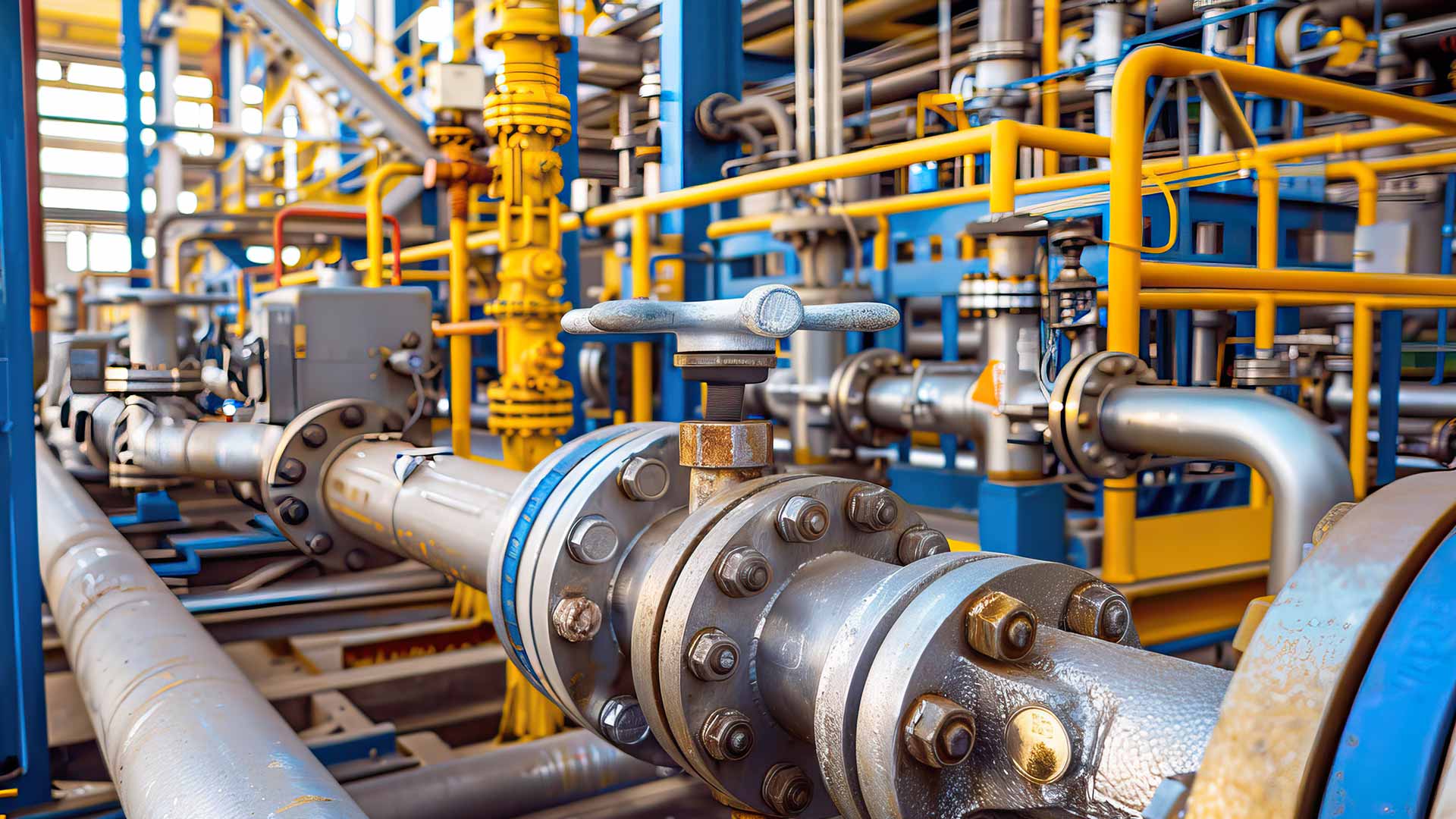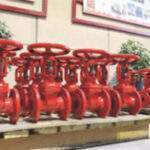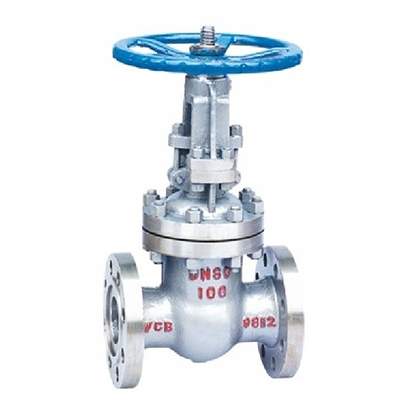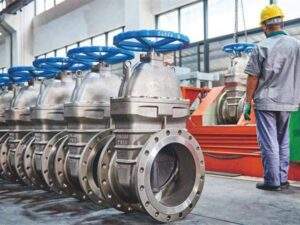Welcome to My Blog!
Before we dive into the content, if you’re interested in our products or have any questions, please feel free to visit our Contact Us page on the website. Our team is ready to assist you with inquiries, orders, or any support you may need.
Now, let’s get started on our journey together. I hope you find the content here insightful, engaging, and valuable.
Copper valves are essential components in a wide range of industries, from plumbing systems in homes to HVAC (heating, ventilation, and air conditioning) applications in commercial buildings. Their durability, corrosion resistance, and heat conductivity make them the preferred choice for various systems. In this guide, we’ll explore everything you need to know about copper valves, including their benefits, common applications, specifications, maintenance, and more.
Introduction
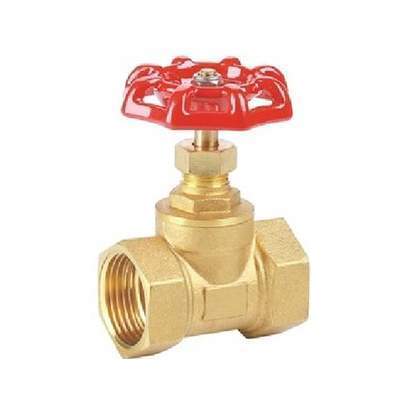
Copper valves are mechanical devices that control the flow of fluids or gases within a system. They are primarily used in plumbing, HVAC systems, and industrial applications where reliability and resistance to corrosion are essential.
What is a Copper Valve?
A copper valve is a type of valve made primarily from copper or copper alloys. Copper is chosen due to its excellent resistance to corrosion, especially in environments exposed to water or various chemicals. Copper valves are commonly used in plumbing, HVAC, and industrial systems due to their durability and long lifespan.
Copper valves are used to regulate, direct, or control the flow of liquids and gases through pipes. They come in various types, including ball valves, gate valves, and check valves, each designed for specific applications.
How Copper Valves Work
Copper valves operate by using a mechanism to either open or close a passage, allowing fluids or gases to flow through or stop. The working principle varies depending on the type of valve:
- Ball Valves: Use a rotating ball to control the flow of the fluid.
- Gate Valves: Employ a sliding gate to open or close the passage.
- Check Valves: Allow fluid to flow in only one direction, preventing backflow.
Each valve type serves a unique function, making them suitable for specific tasks, such as regulating water supply, controlling air flow, or protecting systems from pressure surges.
Why Choose Copper Valves?
Copper valves offer several advantages over other materials like steel or plastic, making them an ideal choice for many applications.
Benefits of Copper Valves Over Other Materials
- Durability and Corrosion Resistance
Copper is naturally resistant to corrosion, even in harsh environments. This makes copper valves ideal for use in water supply systems, sewage treatment plants, and other applications exposed to moisture and chemicals. Copper valves can last for decades without showing signs of deterioration. - Excellent Thermal Conductivity
Copper has outstanding thermal conductivity, which allows it to efficiently transfer heat. This property is especially beneficial in HVAC and industrial applications, where temperature regulation is crucial. - Low Maintenance and Longevity
Copper valves require minimal maintenance due to their corrosion-resistant properties. Over time, they remain highly functional without needing frequent repairs or replacements, providing excellent value for money in the long run.
Cost-Effectiveness of Copper Valves
While the initial cost of copper valves may be higher than those made from materials like plastic or steel, their durability, resistance to corrosion, and low maintenance needs make them a more cost-effective option in the long term. This makes them particularly attractive for industries and homeowners looking to minimize replacement costs and system downtime.
Common Applications of Copper Valves
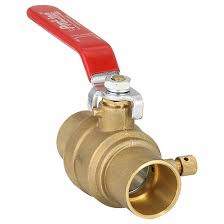
Copper valves are used in a wide range of applications, including residential plumbing, HVAC systems, and industrial setups. Below are some of the most common uses:
Copper Valves in Plumbing Systems
Copper valves are commonly used in plumbing systems to regulate the flow of water in homes, commercial buildings, and industrial facilities. They are especially popular in potable water systems due to their resistance to corrosion, which helps maintain water quality.
Copper Valves in HVAC Systems
In HVAC applications, copper valves play a key role in controlling air and refrigerant flow. The high thermal conductivity of copper makes it ideal for systems that require efficient heat transfer, such as cooling and heating systems in buildings and vehicles.
Copper Valves in Industrial Applications
Copper valves are also widely used in industrial machinery and processes that require fluid or gas control. Industries such as oil and gas, chemical manufacturing, and power generation rely on copper valves to ensure the smooth operation of their systems.
Key Features and Specifications of Copper Valves
When selecting copper valves, it is important to consider their features and specifications to ensure they meet the specific needs of your system.
Copper Valve Pressure Ratings
Pressure ratings determine the maximum pressure a valve can withstand without failure. Copper valves are designed to handle varying pressure levels, from low-pressure applications in residential plumbing to high-pressure industrial systems. It’s important to choose a valve with the appropriate pressure rating for your system to ensure safe and efficient operation.
Copper Valve Flow Rate
The flow rate refers to the volume of fluid that passes through the valve per unit of time. This is a crucial factor when selecting a copper valve, as choosing a valve with the incorrect flow rate can result in inefficient system operation, leading to increased energy costs and system wear.
Copper Valve Sizes and Dimensions
Copper valves come in a variety of sizes to fit different pipe diameters. It is important to select the correct valve size to match the pipe size in your system. A valve that is too large or too small can result in pressure drops, leaks, and other issues.
Maintenance and Care for Copper Valves
Copper valves are generally low-maintenance, but proper care and occasional inspection are necessary to ensure they continue functioning efficiently.
How to Install Copper Valves Correctly
Installing copper valves requires careful attention to ensure they are properly fitted and sealed. Here’s a basic guide:
- Shut off the water or gas supply.
- Cut the pipe to the appropriate length, ensuring that the ends are clean and smooth.
- Solder or thread the valve onto the pipe, ensuring a secure fit.
- Test the valve for leaks by gradually turning the water or gas supply back on.
Preventing Leaks in Copper Valves
Copper valves are less prone to leaks compared to other materials, but they can still develop leaks over time, especially at joints. To prevent leaks:
- Use high-quality gaskets and seals.
- Regularly inspect the valve for signs of wear.
- Ensure proper installation to avoid unnecessary pressure on the valve.
Cleaning and Maintaining Copper Valves
Copper valves should be cleaned regularly to prevent the buildup of debris, mineral deposits, and corrosion. Use a soft cloth and non-abrasive cleaner to wipe the valve’s surface. Avoid harsh chemicals that could damage the copper.
Troubleshooting Common Issues with Copper Valves
Despite their durability, copper valves can experience issues over time. Below are some common problems and how to address them:
What to Do When Your Copper Valve Leaks
Leaking copper valves can be caused by improper installation, excessive pressure, or wear over time. To fix a leaking valve:
- Check for visible cracks or damage.
- Replace seals or gaskets as needed.
- If the valve is severely damaged, it may need to be replaced entirely.
Dealing with Corrosion in Copper Valves
Copper valves are resistant to corrosion, but they can still be affected by certain conditions, such as high-acidic water or prolonged exposure to moisture. To prevent corrosion:
- Keep the valve dry when not in use.
- Use corrosion-resistant coatings where necessary.
- Replace valves that show signs of severe corrosion.
Fixing Pressure and Flow Issues
If a copper valve is causing pressure or flow issues, the problem may be related to improper sizing or blockages. Ensure the valve is the correct size for your system, and check for any debris or buildup inside the valve that could restrict flow.
Choosing the Right Copper Valve for Your Needs

Selecting the right copper valve for your application is crucial for ensuring efficiency and safety.
How to Select the Best Copper Valve for Your Project
Consider factors such as pressure rating, flow rate, valve type, and size when selecting a copper valve. Make sure to choose a valve that matches the specific requirements of your plumbing, HVAC, or industrial system.
Copper Valve Suppliers: How to Choose a Reliable Supplier
When purchasing copper valves, it is essential to choose a reputable supplier. Look for suppliers with a track record of providing high-quality valves, competitive pricing, and reliable customer service. Always check customer reviews and ask for product warranties.
Conclusion
Copper valves offer unmatched durability, efficiency, and resistance to corrosion. Their ability to withstand high pressure, heat, and harsh environments makes them ideal for a wide range of applications. Whether you’re installing copper valves in a plumbing system, HVAC unit, or industrial machinery, choosing the right valve can save you time and money in the long run.
Invest in high-quality copper valves today, and ensure the long-term success of your system. Reach out to a trusted supplier to learn more about copper valve options that best meet your needs.
FAQ
What Is the Lifespan of a Copper Valve?
Copper valves can last for decades, especially if maintained properly. Their lifespan depends on factors like water quality, system pressure, and frequency of use.
Are Copper Valves Better Than Brass Valves?
Copper valves are generally more resistant to corrosion than brass valves, making them the preferred choice in environments exposed to water or chemicals.
Can Copper Valves Be Used in Outdoor Environments?
Yes, copper valves are suitable for outdoor use, but they may require additional protection to prevent exposure to extreme weather conditions.
Do Copper Valves Require Special Tools for Installation?
Copper valves do require specialized tools, such as pipe cutters, soldering equipment, or threading tools, depending on the type of valve and installation method.
How Can I Prevent Corrosion in Copper Valves?
To prevent corrosion, regularly clean the valves, ensure they are installed in a dry environment, and use protective coatings when necessary.
Ready to Upgrade Your System with Reliable Copper Valves?
Choose quality, durability, and efficiency. Contact us today to explore our wide range of copper valves, designed to meet your specific needs. Don’t wait – ensure the longevity and performance of your systems now!
Get in touch to speak with our experts or browse our products to find the perfect copper valve for your project.

